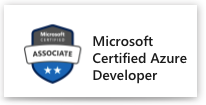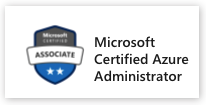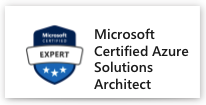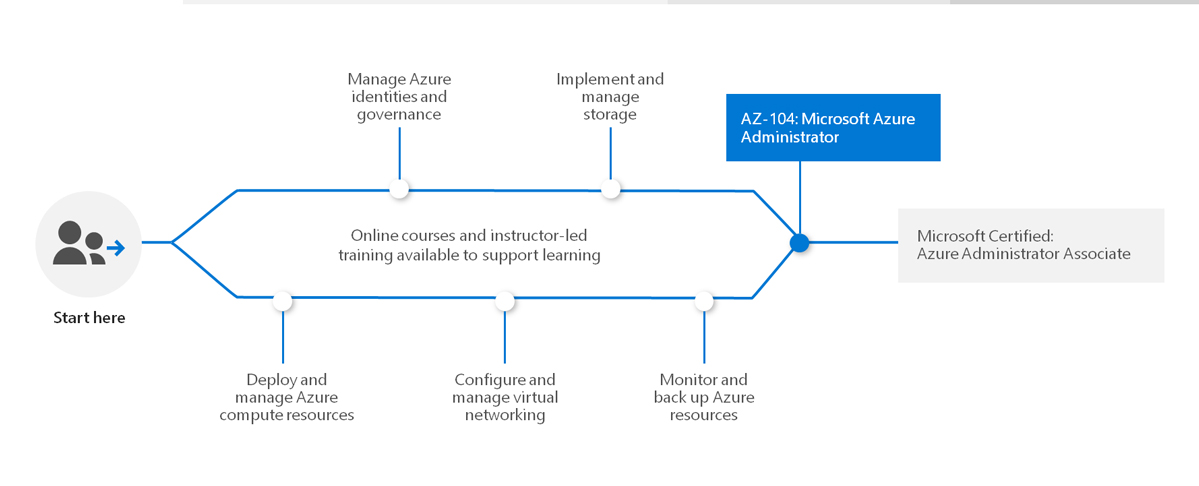
QUICK QUERY
Role Specialization with Microsoft Azure Certifications
Although 70% of CIOs have a “cloud-first strategy” and 85% of enterprises want to incorporate cloud architecture, only 16% of organizations have the required skills and processes. Businesses are looking to fill roles with professionals who have skills to work across multiple platforms with rapidly changing tools & technology. There is a significant skill gap in Cloud IT roles. After massive market research & consultation with industry SME who are working in the field, Microsoft has refined & defined overall list of roles & skills. Now training and certification has expanded beyond individual technologies to focus on the skills and concepts needed for specific job roles.
RPS Consulting – India’s top enterprise learning organization and a global managed partner to Microsoft offers courses on all Azure Skills through a variety of delivery models with its massive strength of over 20+ MCTs (Microsoft Certified Trainer).
Public Program Schedule
| Courses | Duration | Download brochure | Location | Schedule | Enroll |
|---|---|---|---|---|---|
| Microsoft Fabric Analytics Engineer (DP-600) | 4 Days |  | Register | ||
| Microsoft Azure Security Technologies (AZ-500) | 4 Days |  | Register | ||
| Microsoft Identity and Access Administrator (SC-300) | 4 Days |  | Register | ||
| Designing and Implementing Microsoft DevOps Solutions (AZ-400) | 4 Days |  | Register |
Our Client Speak
Are you interested in other Microsoft courses?
Explore

Didn't find your city?
Ask for Virtual Instructor Lead Training (VILT)
Ask now
From a different time zone?
Ask for Self-Paced On Demand Training
Enquire now
Are you a corporate?
Ask for a Private Program
Contact now
Why Choose RPS ?

One of the top enterprise
learning company in India
Recognized as Global Managed
Partner for Microsoft
RPS has 20+ Microsoft
Certified Trainers (MCT)
RPS has presence in all
the major IT Hubs
in India
Check Statistics
+
years of partnership
K+
Participants trained
+
certified instructors
+
batches p.a.
FAQ

The model is based on three tiers of expertise: Fundamentals, Associate, and Expert. For some solution areas, there will be a Fundamentals-level exam. Upon passing that exam, he/she receives a Fundamentals certification. The Associate level typically includes two (2) role-based exams, though this can vary, based on the skills required for the associated job role. Individuals must pass all required exams to receive the Associate certification. The Fundamentals exam is not required to receive the Associate-level certification. Expert-level requirements vary by certification, based on the skills required for that job role—in some cases, by passing two Expert-level exams without an Associate-level certification, or by attaining an Associate-level certification and then passing an Expert-level exam. Be sure to refer to the specific certification and exam pages for specific requirements.
There is an additional option for some Associate-level and Expert-level certification, and that is by passing a transition exam. The transition exam is intended for people who have already demonstrated skills in the content domain by passing the existing exams that the new role-based certification exams will be replacing. They cover the delta between the current certification and what we expect people who earn the new certification to be able to do. We don’t want to retest people on the same content where they have already demonstrated competence by passing the existing exam, and we don’t want to penalize people who have been preparing to take an exam that we are replacing with the new certifications (they should still take the exam, but they should do so quickly, as all of the affected exams will be retired within six (6) months of the new exam availability). Transition exams cover net new content, content that wasn’t covered in enough depth, and content on aspects of the technology that have likely changed since someone took the exam. As a result, the transition exam is not shorter than a typical exam but more focused on the key tasks and skills that were not assessed in the existing exam or certification that is being replaced.
New Azure Apps and Infrastructure certifications are currently available for the following roles: Azure Administrator, Azure Developer, and Azure Solutions Architect. Transition exams are available for each of these roles.
The content domains assessed in the new role-based certifications are based on a thorough job task analysis (JTA) that was done to truly understand the skills required to be successful in that job role. After compiling that list of skills, we narrowed it down to what we would measure in the certification process. There are four roles currently defined for the Azure Apps and Infrastructure certifications.
Cloud Administrator: Cloud Administrators manage the cloud services that span storage, security, networking, and compute cloud capabilities, with a deep understanding of each service across the full IT lifecycle. They take requests for infrastructure services, applications, and environments. They make recommendations on services to use for optimal performance and scale. They provision, size, monitor and adjust resources as appropriate.
Cloud Developer: Azure Developers design and build cloud solutions such as applications and services. They participate in all phases of development—from solution design to development and deployment to testing and maintenance. They partner with cloud solutions architects, cloud DBAs, cloud administrators, and clients to implement the solution. Azure Developers should be proficient in developing apps and services by using Azure tools and technologies, including storage, security, compute, and communications.
Cloud Solutions Architect: A Cloud Solutions Architect (CSA) advises stakeholders and translates business requirements into secure, scalable, and reliable solutions. CSAs have advanced experience and knowledge across various aspects of IT operations, including networking, virtualization, identity, security, business continuity, disaster recovery, data management, budgeting, and governance. This role requires managing how decisions in each area affects an overall solution. CSAs must be proficient in cloud administration, cloud development, and DevOps, and have expert-level skills in at least one of those domains.
To achieve one of these role-based certifications, you must pass the following exams:
Azure Administrator
- Exam AZ-100: Microsoft Azure Infrastructure and Deployment
- Exam AZ-101: Microsoft Azure Integration and Security
Azure Developer
- AZ-200: Microsoft Azure Developer Core Solutions
- AZ-201: Microsoft Azure Developer Advanced Solutions
Azure Solutions Architect
- AZ-300: Microsoft Azure Architect Technologies
- AZ-301: Microsoft Azure Architect Design
Upon passing both exams, the individual will be Microsoft Certified: Azure Solutions Architect Expert.
Individuals who pass one of the two required exams for certification will receive an achievement badge.
Yes. Microsoft will be retiring the following exams on December 31, 2018:
- Exam 70-532: Developing Microsoft Azure Solutions
- Exam 70-533: Implementing Microsoft Azure Infrastructure Solutions
- Exam 70-535: Architecting Microsoft Azure Solutions
The replacement for Exam 70-532 is the Azure Developer Associate certification (consisting of exams AZ-200 and AZ-201).
The replacement for Exam 70-533 is the Azure Administrator Associate certification (consisting of exams AZ-100 and AZ-101).
The replacement for Exam 70-535 is the Azure Solutions Architect Expert certification (consisting of exams AZ-300 and AZ-301).
Yes. It will affect the Cloud Platform, Application Development, Application Integration, and Cloud Business Applications competencies.
- Cloud Platform: Exams 70-532, 70-533, and 70-535 are among the requirement options.
- Application Development: Exams 70-532 and 70-533 are among the requirement options.
- Application Integration: Exam 70-532 is among the requirement options.
- Cloud Business Applications: Exam 70-535 is among the requirement options.
Exams 70-532, 70-533, and 70-535 will retire on December 31, 2018, but will be valid for competencies until December 31, 2019. The new requirements will go into effect on January 1, 2019.
Individuals who are currently preparing for Exam 70-532, 70-533, or 70-535 must complete the examination by December 31, 2018. Those exams will be valid for competencies until December 31, 2019.
No. Individuals in your organization who previously passed Exam 70-532, 70-533, or 70-535 should take the appropriate transition exam instead. The transition exam covers the delta between the current certification and what we expect people who earn the new certification to be able to do. The transition exams are as follows:
- If you cancel or reschedule your registration 5 or more calendar days before the scheduled start date of the class – No cancellation charges
- If you cancel or reschedule your registration less than 5 calendar days before the scheduled start date of the class – cancellation charges 100% of the course fee
- If you do not show up for the event, or cancel on the day of the event - cancellation charges 100% of the course fee
The following image shows the prescribed path for those who have previously passed one of the retiring exams (transition option) and for those who have not (net new option).

The content domains assessed in the new role-based certifications are based on a thorough JTA that was done to truly understand the skills required to be successful in that job role. After compiling that list of skills, we narrowed it down to what we would measure in the certification process. If you haven’t passed the associated existing exam, to become Microsoft Certified, you will need to pass the exam(s) in the path. However, if you have passed the associated existing exam, we want to recognize your accomplishments and provide a shorter path to certification through the transition process.
The transition exam is intended for people who have already demonstrated skills in the content domain by passing the existing exams that the new role-based certification exams will be replacing. They cover the delta between the current certification and what we expect people who earn the new certification to be able to do. We don’t want to retest people on the same content where they have already demonstrated competence by passing the existing exam, and we don’t want to penalize people who have been preparing to take an exam that we are replacing with the new certifications (they should still take the exam, but they should do so quickly, as all of the affected exams will be retired within six (6) months of the new exam availability). Transition exams cover net new content, content that wasn’t covered in enough depth, and content on aspects of the technology that have likely changed since someone took the exam. As a result, the transition exam is not shorter than a typical exam but more focused on the key tasks and skills that were not assessed in the existing exam or certification that is being replaced.
They are USD99 each.
You may be an individual who is looking for getting certified on personal front (or) you may be an enterprise looking for private batches (or) you may be interested in On-Demand Self-paced learning. You would be serviced by RPS Consulting. You may leave a query and we will reach out to you with the details.
Yes. As the exams that make up our existing certifications become outdated, they will be replaced with certifications, exams, and learning paths that will be based on a JTA. Going forward, all new exams and certifications will also start with a JTA.

 +91 9148592716
+91 9148592716  info@rpsconsulting.in
info@rpsconsulting.in














 +91 9148592716
+91 9148592716 info@rpsconsulting.in
info@rpsconsulting.in www.rpsconsulting.in
www.rpsconsulting.in